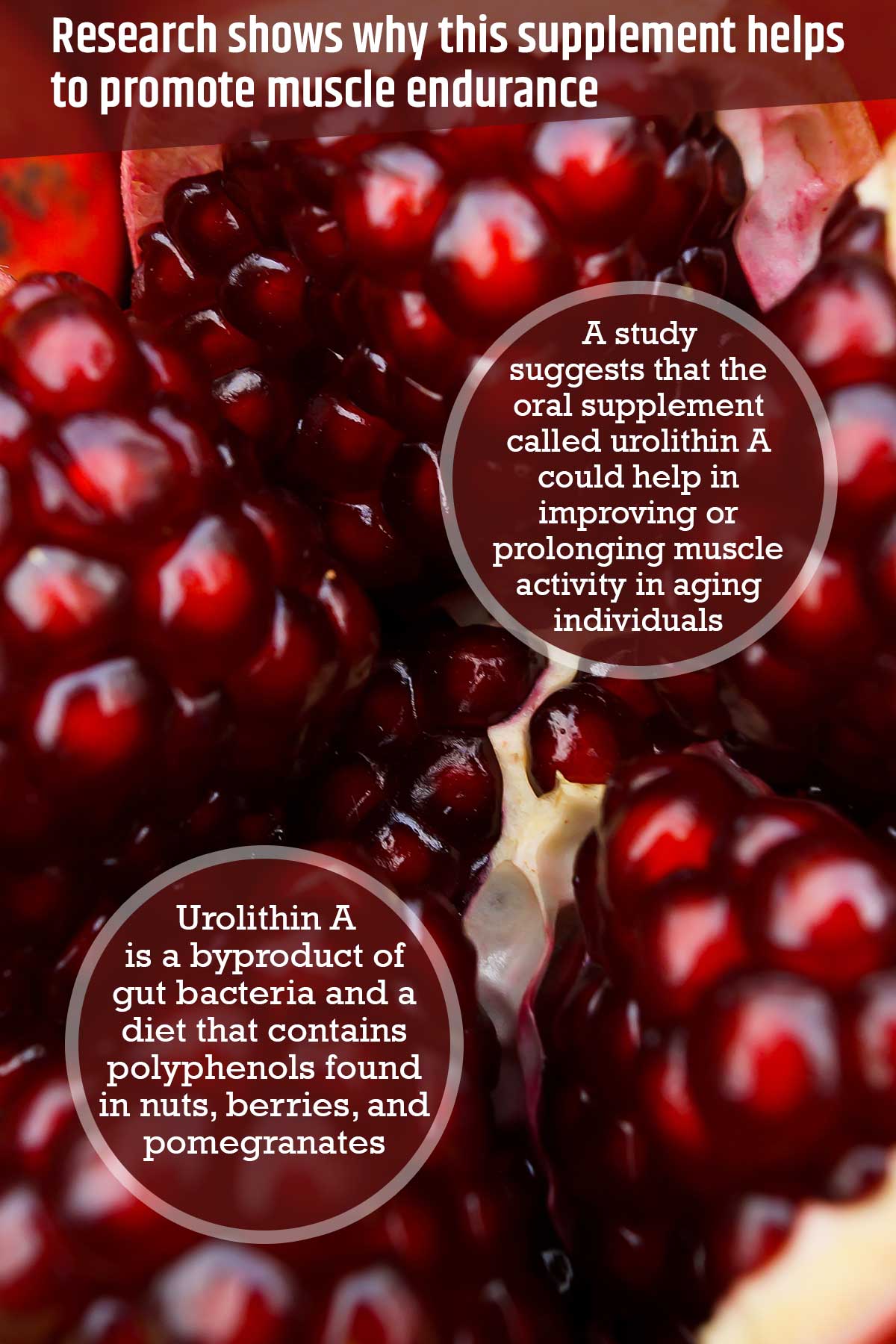A supplement intended for stimulating a natural body process seems to promote endurance of the muscles as well as mitochondrial health in people.
A study suggests that the oral supplement called urolithin A could help in improving or prolonging muscle activity in aging individuals or in those with diseases that make exercising problematic.1✅ JOURNAL REFERENCE
DOI: 10.1001/jamanetworkopen.2021.44279
Urolithin A is a byproduct of gut bacteria and a diet that contains polyphenols found in nuts, berries, and pomegranates. Since age, diet, genetics, and disease impact the gut microbiome’s makeup, urolithin A is produced by individuals at variable rates.
It’s also produced and sold as a dietary supplement. Animal studies and molecular human research has found supplemental urolithin A to stimulate mitophagy, a mitochondrial quality control process.
Mitochondria power the body’s cells that are similar to batteries, but with time they wear out. The mitophagy process realizes this failure and proactively breaks down the mitochondria, reducing it to elemental process parts that can be reused by cells.
Mitophagy however diminishes with aging and this pool of failing mitochondria is accumulated, which is one of the ways that muscle functionality diminishes as we grow older.
For the study, a small group of individuals older than 65 was randomized to a daily supplementation of 1,000 mg urolithin A or a placebo for four months.
At the beginning of the study, each one of the 66 individuals was confirmed as having subpar or average capacity to make adenosine triphosphate, known as ATP, which is produced by the mitochondria for helping cells perform countless functions.
The researchers theorized that if mitophagy was boosted by the urolithin A supplement, the individuals would experience greater ATP output and improved muscle function.
In both groups, two muscle function comparisons were found to support the theory, but two others didn’t:
- Two muscle endurance measures were improved in the group that received the supplement in comparison to the group that received the placebo. Endurance was measured with hand and leg exercises. The increase in how many muscle contractions up to the point of fatigue between the first test and the 4-month test was measured.
- Measures of distance completed while walking for 6 minutes improved significantly between baseline tests and 4 months in both the placebo and supplement groups. Researchers however saw no effect of significance with the supplement in comparison to the placebo.
- Magnetic resonance spectroscopy measures of maximal ATP production improvement didn’t change significantly between the start of the study and at 4 months in either of the groups.
The results are interesting because they reveal that taking the supplement for a short time helped improve muscle endurance, as well as fatigue resistance improvement without exercise.
Plasma samples were also taken from the individuals at the beginning of the study, at 2 months, and at 4 months for assessing the potential effect of the supplement on the bioavailability of urolithin A and mitochondrial health and inflammation biomarkers.
In the supplement group, urolithin A was linked to a substantial reduction in several ceramides and acylcarnitines involved in mitochondria-related metabolic disorders.



